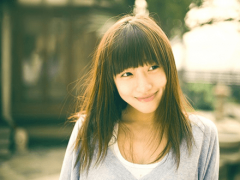中秋节英文介绍
中秋节英文介绍 中秋节是我国的传统节日,每到八月十五这个花好月圆的日子,人们总会团聚在一起,观赏月亮,品尝月饼,以此表示今后圆圆满满,并对美好的未来抱着无限的向往。下面是网我为大家带来关于中秋节的英文介绍,供大家阅读! 相关词汇 vocabulary Mid-autumn day/Festival 中秋节 Moon Festival / Mooncake Festival / Moon Festival 中秋节 lunar农历 mooncake月饼 minimooncake 迷你月饼 mooncakes with meat / nuts / 肉馅/果仁/蛋黄月饼 ham mooncake火腿月饼 grapefruit / pomelo / shaddock 柚子 glue pudding 汤圆 lantern / scaldfish灯笼 Chang E 嫦娥 Hou Yi 后羿 relative activities相关活动: gather to admire the bright mid-autumn harvest moon 聚在一起赏月 light lantern 点灯笼 carry the lantern around 提灯笼 burn incense 烧香 fire dragon dances 火龙舞 The custom of worshipping the moon 拜月的习俗 worshippe the full moon 拜满月的习俗 family reunion 家庭团聚 / 圆 came out to watch the full moon to celebrate the festival 到户外赏月 the custom of Mid-Autumn Festival celebration 庆祝中秋节的习俗 相关介绍 "Zhong Qiu Jie", which is also known as the Mid-Autumn Festival, is celebrated on the 15th day of the 8th month of the lunar calendar. It is a time for family members and loved ones to congregate and enjoy the full moon - an auspicious symbol of abundance, harmony and luck. Adults will usually indulge in fragrant mooncakes of many varieties with a good cup of piping hot Chinese tea, while the little ones run around with their brightly-lit lanterns. 农历八月十五日是中国的传统节日——中秋节。在这天,每个家庭都团聚在一起,一家人共同观赏象征丰裕、和谐和幸运的圆月。此时,大人们吃着美味的月饼,品着热腾腾的香茗,而孩子们则在一旁拉着兔子灯尽情玩耍。 "Zhong Qiu Jie" probably began as a harvest festival. The festival was later given a mythological flavour with legends of Chang-E, the beautiful lady in the moon. 中秋节最早可能是一个庆祝丰收的节日。后来,月宫里美丽的.仙女嫦娥的神话故事赋予了它神话色彩。 According to Chinese mythology, the earth once had 10 suns circling over it. One day, all 10 suns appeared together, scorching the earth with their heat. The earth was saved when a strong archer, Hou Yi, succeeded in shooting down 9 of the suns. Yi stole the elixir of life to save the people from his tyrannical rule, but his wife, Chang-E drank it. Thus started the legend of the lady in the moon to whom young Chinese girls would pray at the Mid-Autumn Festival. 传说古时候,天空曾有10个太阳。一天,这10个太阳同时出现,酷热难挡。弓箭手后翌射下了其中9个太阳,拯救了地球上的生灵。他偷了长生不死药,却被妻子嫦娥偷偷喝下。此后,每年中秋月圆之时,少女们都要向月宫仙女嫦娥祈福的传说便流传开来。 In the 14th century, the eating of mooncakes at "Zhong Qiu Jie" was given a new significance. The story goes that when Zhu Yuan Zhang was plotting to overthrow the Yuan Dynasty started by the Mongolians, the rebels hid their messages in the Mid-Autumn mooncakes. Zhong Qiu Jie is hence also a commemoration of the overthrow of the Mongolians by the Han people. 在14世纪,中秋节吃月饼又被赋予了一层特殊的含义。传说在朱元璋带兵起义推翻元朝时,将士们曾把联络信藏在月饼里。因此,中秋节后来也成为汉人推翻蒙古人统治的纪念日。 During the Yuan Dynasty (A.D.1206-1368) China was ruled by the Mongolian people. Leaders from the preceding Sung Dynasty (A.D.960-1279) were unhappy at submitting to foreign rule, and set how to coordinate the rebellion without it being discovered. The leaders of the rebellion, knowing that the Moon Festival was drawing near, ordered the making of special cakes. Packed into each mooncake was a message with the outline of the attack. On the night of the Moon Festival, the rebels successfully attacked and overthrew the government. What followed was the establishment of the Ming Dynasty (A.D. 1368-1644). Today, moon cakes are eaten to commemorate this event. 在元朝,蒙古人统治中国。前朝统治者们不甘心政权落入外族之手,于是密谋策划联合起义。正值中秋将近,起义首领就命令部下制作一种特别的月饼,把起义计划藏在每个月饼里。到中秋那天,起义军获取胜利,推翻了元朝,建立明朝。今天,人们吃月饼纪念此事。 Mid-Autumn Day is a traditional festival in China.Almost everyone likes to eat mooncakes on that day.Most families have a dinner together to celebrate the festival.A saying goes,"the moon in your hometown is almost always the brightest and roundest".Many people who live far away from homes want to go back to have a family reunion.How happy it is to enjoy the moon cakes while watching the full moon with your family members. Happy Mid-autumn Festival! Wish you and your family a happy Mid-autumn Festival! ;
中秋节意义英文
中秋节的意义英语是 The significance of the mid-autumn Festival。中秋节,是中国传统节日之一,为每年的农历八月十五,也是我国仅次于春节的第二大传统节日。中秋节的寓意是团圆。对中国人来说,中秋节意味着团聚、平安。人们觉得,中秋节的月亮最大、最圆。满月象征着繁荣、幸福和团圆。中秋节的意义:中秋节为每年的农历八月十五,它与春节、清明节、端午节并称为中国的四大传统节日。中秋节有三千多年历史,可以追溯到商代时对月亮的崇拜。因为中秋节的重要地位,历代诗人都会为中秋节写诗,关于中秋节的故事、传奇在民间广为流传,中秋节的起源也被历代中国人探究。中秋节代表着团圆。在我国,中秋节时,在外的游子都会赶回家,和家人一起赏月、吃月饼,所以,中秋节象征着家庭的圆满、人们的团聚,也寄托着人们对生活无限的热爱和对美好生活的向往。
“迎中秋庆国庆"英语怎么说
Welcome the Mid-Autumn Festival to celebrate National Day重点词汇welcome英 [ˈwelkəm] 美 [ˈwelkəm] vt.欢迎,迎接;迎新;乐于接受adj.受欢迎的;令人愉快的;可随意的;尽管……好了n.欢迎;迎接;接受int.欢迎n. (Welcome)(美、印)韦尔科姆(人名)短语welcome to 欢迎到来 ; 欢迎参加 ; 欢迎到 ; 欢迎来到近义词:salute英 [səˈluːt] 美 [səˈluːt] n. 致敬,欢迎;敬礼vt. 行礼致敬,欢迎vi. 致意,打招呼;行礼短语Royal Salute 皇家礼炮 ; 苏格兰威士忌 ; 皇室礼炮 ; 品牌皇家礼炮
国庆祝福语英语
英语国庆节祝福语:1、愿幸福和快乐永远陪伴你,愿你好好享受国庆长假!May happiness and happiness be with you forever. May you enjoy the National Day holiday!2、祝愿咱们的祖国繁荣昌盛,所有的人健康平安。May our motherland be prosperous and healthy for all.3、吉祥如意到,事业步步高,祝福来,好运升,愿你一生快乐又轻松。Auspicious luck, BBK, blessing, luck rise, I wish you a happy and relaxed life.4、国庆节,祝你有美洋洋的心情,尽享懒洋洋的时光。National Day, I wish you a beautiful mood, enjoy lazy time.5、祝你开开心心吃,乐乐呵呵玩,度过一个幸福、欢乐的假期,国庆快乐!I wish you a happy and joyful holiday. Happy National Day!6、这美好的日子,让我用最真挚的祝福陪你度过!国庆快乐!This beautiful day, let me use the most sincere blessing to accompany you! Happy National Day!7、真心祝你,幸福双双至,快乐到永远!国庆节快乐!Sincerely wish you happiness and happiness forever! Happy National Day!8、祝愿您天天开心快乐,事事幸福如意!I wish you every day happy and happy.9、祝你国庆节快乐,心想事成,事业蒸蒸日上!I wish you a happy National Day.10、愿你的国庆格外精彩,祝你全家都能在国庆收获幸福。May your national day be wonderful. I wish your whole family a happy harvest on national day.
女娲补天英文版简短 女娲补天英文版带翻译
1、女娲补天英文版简短
Nüwa is agoddess in ancient Chinese mythology best known for repairing the wall of heaven. At that time, there was a quarrel between two of the more powerful gods, Gong Gong and Zhu Rong and they decided to settle it with fists. When the water god, Gong Gong, saw that he was losing, he smashed his head against Mount Buzhou (不周山), a pillar holding up the sky. The pillar collapsed and caused the sky to tilt towards the northwest and the earth to shift to the southeast.
This caused great calamities, such as raging fires, vast floods, and the appearance of fierce man-eating beasts. Nüwa cut off the legs of a giant tortoise and used them to supplant the fallen pillar, alleviating the situation and sealing the broken sky using stones of seven different colors, but she was unable to fully correct the tilted sky. This explains the phenomenon that sun, moon, and stars move towards the northwest, and that rivers in China flow southeast into the Pacific Ocean.
2、女娲补天英文版翻译:
传说当人类繁衍起来后,忽然水神共工和火神祝融打起仗来,二神从天上一直打到地下,闹得到处不宁,结果祝融打胜了,但失败的共工不服,一怒之下,把头撞向不周山。女娲目睹人类遭到如此奇祸,感到无比痛苦,于是决心补天,以终止这场灾难。
她选用各种各样的五色石子,架起火将它们熔化成浆,用这种石浆将残缺的天窟窿填好,随后又斩下一只在水中作乱的大龟四脚,当作四根柱子把倒塌的半边天支起经过女娲一番辛劳整治,苍天总算补上了,地填平了,水止住了,龙蛇猛兽敛迹了,人民又重新过着安乐的生活。但是这场特大的灾祸毕竟留下了痕迹。从此天还是有些向西北倾斜,因此太阳、月亮和众星辰都很自然地归向西方,又因为地向东南塌陷,所以一切江河都往那里汇流。
女娲补天的英文怎么说?
1、女娲补天英文:It is said that there was no man when the sky andthe earth were separated by Pangu. It was Nuwawho made human beings after her own model withyellow clay.From then on, man began to live in peace andhappiness on the earth.nexpectedly, one year, the fourpillars supportingthe heaven suddenly collapsed and the earthcracked. A great fire raged; torrential water flooded all the lands;fierce animals preyed on men. ThenNuwa melted fivecolored stones, using them to mend the cracks in the sky.To replace the broken pillars, she cut off the four legs of a huge turtle and used them tosupport the fallensky.Thus the sky was patched up, its four corners were lifted, the flood was tamed, harmful animalswere killed, and the innocent people were able to restore their happy lives.中文:盘古开天辟地后,世上本没有人,是女蜗按照自己的样子用黄 泥塑出了人类。此后,人们便开始在大地上幸福的生活着。天有不测风云,一年, 忽然天崩地裂,大火肆虐,洪水滔天,野兽横行伤人。女蜗把五彩石融化,再用这些熔化了的液体把天上的洞补好。然后,她又将一只万年巨龟的四足斩下,把它们用作擎天柱,支撑住了天地的四方。就这样,天补好了,四个角撑住了,洪水被驯服, 猛兽被消灭,人类的生活又恢复到往日的幸福祥和之中。2、玉兔捣药英文:Legend has it that there are three gods into three of the elderly poor, to foxes, monkeys, rabbits for food, the fox and the monkey had food to relief, only rabbit be at a loss what to do. Then the rabbit said: "you eat my flesh!" it into the fire, will he cooked, fairy touched, put the rabbit to the palace of the moon, the moon. Company E, and ramming ever-young medicine.中文:相传有三位神仙变成三个可怜的老人,向狐狸、猴子、兔子求食,狐狸与猴子都有食物可以济助,唯有兔子束手无策。后来兔子说:“你们吃我的肉吧!”就跃入烈火中,将自己烧熟,神仙大受感动,把兔子送到月宫内,成了玉兔。陪伴嫦娥,并捣制长生不老药。 3、精卫填海英文:Once upon a time, Yan has a small daughter, Her name is baby girl, he loved his little daughter, Yan often play with the girls, but the terrible thing happened, girls playing in the sea, unfortunately, dead water, and then She turned into a bird, named Jingwei, Yan sad day Jade Bird watching it, and finally decided to make this Jingwei filled the sea, so that he no longer claimed more lives!中文:从前,有1个女孩叫做精卫,她很爱自己的父亲炎帝,他们经常在一起玩,每天都很开心。有一天,精卫去划船,不小心掉进了海里,后来她变成了1只鸟。她经常去看她的父亲,她的父亲为此很伤心。后来精卫决定用石子把那个海填起来。4、夸父追日英文:Kua Fu tried his best to chase the sun. When he arrived at the place where the sun set, he had to turned around, as he could not bear the thirst, and came to the Yellow River and the Wei River.In one breath, he quaffed up all the water in both rivers. Though he drank up two rivers, he still felt thirsty, and he decided to go to the large lake in the north for a good drink. On the way to the north, Kua Fu eventually died of thirst.The walking stick thrown down by him, being nurtured by the nourishment converted from his dead body, unexpectedly bloomed and fructified, and it grew into peach woods, which stretched for thousands of miles.中文:夸父竭尽全力追赶太阳。当他追赶太阳降落的地方时, 由于忍受不了干渴,只好掉转头,回到黄河、渭河所在的地方,一口气便将这两条河里的水喝得精光。虽然喝光了两条大河,但夸父还是感到不解渴,又打算到北方的大湖里去痛饮一番。北去的途中,夸父终因干渴而死。扔下的手杖,被他的尸体所化成的养料滋润,竟然开花结果,长成一片连绵千里的桃林。5、牛郎织女英文:On the east bank of the heavenly river lived a girl weaver, daughter of the emperor of heaven. She worked hard year in and year out, weaving colorful clothes for gods and goddesses.Later she sneakly married the cowherd who is only a mortal and raised two children with him. However, goddess found the fact that she concealed. Greatly outraged, the goddess forced the girl back across the river and allowed her to join her husband only once a year.On the seventh day of each autumn, magpies would suddenly become bald-headed for no obvious reasons at all. According to legend, that day the cowherd and the weaver met on the east bank of the river, and magpies were made to form a bridge for them. And for this reason the down on their heads was worn out from book of plants and animals.中文:天河东岸住着一个女孩,她是天帝的女儿。她年复一年地辛勤工作,为众神和女神编织丰富多彩的衣服。后来,她偷偷嫁给了一个只是凡人的牛郎,并和他一起抚养了两个孩子。然而,女神发现了她隐藏的事实。女神非常愤怒,她强迫女孩过河,让她一年只能和丈夫团聚一次。每年秋天的第七天,喜鹊突然变得秃顶,完全没有明显的原因。传说那天牛郎和织女在河的东岸相遇,喜鹊被做成了一座桥。正因为如此,他们的头上的毛从植物和动物的书上磨损了。参考资料:百度百科_女娲补天
如何写作文的结尾呢?
写作方法 1、确定中心,写出深意。我们要着于挖掘所写事件中含有的生活哲理或找出它闪光的地方,反复思考,确定文章的中心思想。即善于从普通的小事中写出深意来。 2、文章的六要素要交待清楚。一件事情的发生,离不开时间、地点、人物、事情的起因、经过和结果这六方面,即常说的“六要素”,只有交待清楚这几方面,才能使读者对所叙述的事,有个清楚、全面的了解。3、言之有序,条理要清楚。根据所述时间选择合理的顺序来安排材料。一般叙事顺叙、倒叙和插叙三种。 4、详略得当,突出重点。一般事件的材料有主次之分,能体现文章中心的材料是主要材料,这部分要详写,次要内容可略写或不写,主次分明,给读者以深刻的印象。例文:年迈的老奶奶和吹泡泡的莎莎吹泡泡的莎莎敲门,门开了,一张带着和蔼笑容的脸出现在门后,是奶奶。一直在这规定时间出现在门后的,从来都是奶奶。今天亦没变。不知为何,在这个平凡的日子里,我抬头仔细打量了一眼奶奶。看后大惊,奶奶的头发何时掺进了如此多的白色。她的脸上何时添了如此之多的皱纹,她的手何时变得如此粗糙,她的身影何时变得如此娇小,小得令人心颤。啊!奶奶老了,老了。那个整天为我们服务的奶奶,终究老了。岁月在她斑白的头发上留下痕迹,在她满是皱纹的脸上留下痕迹,在她粗糙的双手上留下痕迹。在她那越来越小的身影上留下痕迹,帮我们开了门后,奶奶亦步亦趋又走回厨房继续准备晚饭。在我的记忆中,奶奶很高大很强壮,能做很多我做不到的事情。有困难的时候她总能帮我解决。她样样都会,样样都行。可现在我的个头已超过了她,我的力量也越来越大,我长大了。奶奶以前那个在我心中无所无能的奶奶,却老了。总觉得有些遗憾,总觉得奶奶不该如此之快地老去。可沧桑的岁月是无情的,无论我相不相信、接不接受,奶奶老了。
怎样写作文的结尾
怎样写作文的结尾 常见的作文结尾 写好写事作文的结尾,能为读者留下一个完整鲜明的印象,给读者以首尾圆合、结构严谨的感觉。 常见的作文结尾,概括起来有以下几种: 一、自然结尾法。即用事物的自然结果作为文章的结尾,事物叙述完了,文章随之结束。 二、点题结尾法。这是一种常见的结尾方法,例如《美丽的小兴安岭》一课,作者按总述—分述——总述的结构,在总述和分述了小兴安岭一年四季变化和土特产及名贵药材后,用“小兴安岭是一座巨大的宝库,也是一座美丽的大花园”结尾,总结了全文,点明了文章的中心。 三、发问结尾法。即结尾时以发问的形式(反问或设问)提出问题。 四、交代结果结尾法。即结尾时交代文中所记事物的结果,如小学语文《找骆驼》一文的结尾写道:“商人听了,照老人的指点一路找去,果然找到了走失的骆驼。” 五、抒发感情结尾法。即结尾时作者对描述的事物抒发真情实感,饱含赞美之情。 六、启发式结尾法。即结尾给人以某种教育或启发,作者用恰当的词语能使读者思考回味,使人有一种“言已尽,意无穷”的感觉。 七、展望未来结尾法。即在叙述现状之后结尾,展望未来,鼓舞人心,激励斗志。 八、概括全文结尾法。即用简练的语言对全文进行小结、归纳,揭示文章中心。如《我的伯父鲁迅先生》的结尾:“的确,伯父就是这样的一个人,他为自己想得少,为别人想得多。” 九、写出感受,总结全文的结尾。如《马》一文的结尾写道:“我现在看到拉货车的.马,还打心眼里感到亲切。真的,再也没有像马这样忠实的动物了。” 十、表达感情和愿望的结尾。如《关怀》的结尾说:“窗外阳光灿烂,菜花的香气一阵阵扑进教室来,春天这样美好,周总理这样关怀我们,我们感到又温暖,又幸福。” 十一、首尾呼应的结尾。这种结尾方法有多种形式,有的是用相同的句子呼应,还有一种是开头设问,结尾回应开头的设问。 十二、给读者留下思考和回昧的结尾。最常见的是结尾用个省略号。用省略号结尾,可以促使读者去思考、回味,但使用的时候必须注意的是,文章本身要有可以给人深思、回味的内容,不能结尾时没话可写,就随便来个省略号。 十三、象征性结尾。有些文章的结尾,用具体事物去表现某种特殊意义,这种特殊意义具有一定的象征性。 十四、描写式结尾法。这种结尾法一般适用于写人、记事、写景的文章,同学们写作时要注意描写要为突出中心服务,切忌毫无目的的描写或为了描写而描写。 十五、号召性结尾。有些文章的结尾发出号召,提出希望。 十六、评价式结尾。结尾对人物或事物进行总结、评价,表达作者的看法,突出文章的中心。 不管以什么方法结尾,都应该简洁明了。如果长篇大论,就会冲淡正文,喧宾夺主,给读者以画蛇添足之感,文章的感染力就大大削弱了。
求纯音乐
《莫失莫忘》《回梦游仙》《蝶恋》《踏歌行》
《琵琶吟》《寝昆仑》《曲阜孔儒风》
《水墨丹青凤凰城》《大理雪月觅风花》
《平遥古韵》〈渔舟唱晚〉〈徐州凯旋〉
〈英雄的黎明〉〈丝路花雨锁泉州〉〈丽江,梦中的香格里拉〉
〈明月杭州夜》《伊犁:塞外江南 》《情满康定》
《青稞飘香日喀则>〈青瓦白墙恋徽州》
《梦回〉〈梦中的翅膀〉〈竹宛情歌〉〈离魂〉
〈金陵子〉〈殇〉〈寂静之声〉〈夜曲〉
〈神秘园之歌〉〈鹰〉〈雪的梦幻〉〈再见警察〉
赵聪的《琵琶吟》《江南印象》
《春去春又来》 三弄丝竹
林海《秋月夜》 《渡·红尘》
《金枝欲孽》(笛子演奏版)
《姻缘》(二胡演奏版)
《予感 二胡阳炎 ~ 千秋恋歌》
《二十二桥枫别雨》
求纯音乐
呵呵 我也很喜欢纯音乐哦 你说的我也都听过。 这里推荐一些我很喜欢的给你,希望能帮到你
1类似 亡灵序曲
这种充满气势的音乐其实不少,介绍几首自己喜欢的给你吧。
神思者《悲情城市》《海神》《故宫之神思》
吉田洁《遥远的旅途》 《旅立》
子雷《千年风雅》
马克西姆《出埃及记》
姬神《千年的祝福》
喜多郎《响宴》
2 梦中的婚礼这类得浪漫舒缓的钢琴
白日梦《眼泪》 《I miss you 》
黄永灿《如诗般宁静》
李闰珉《雨的印记》
肖邦《夜的钢琴曲二十七》
德彪西《月光曲》
《被遗忘的天使》 《对不起我爱你》纯钢琴曲
3 忧伤还是快乐 这类带点爵士味道的
《悲伤的天使》 俄罗斯的大师人物,不过他的名字确实不好打额。
姬神《一人静》 《小春日和》
然后再推荐些 不是同类 但是我自己认为很好听也值得仔细品味的作品吧
陈悦《绿野仙踪》 《乱红》
刘星《闲云孤鹤》
神思者《伽罗》
神秘园《神秘园之歌》 《追梦人》 太多了 你喜欢纯音乐可以加 纯音乐专业分享QQ群 44609775 希望你爱上纯音乐




